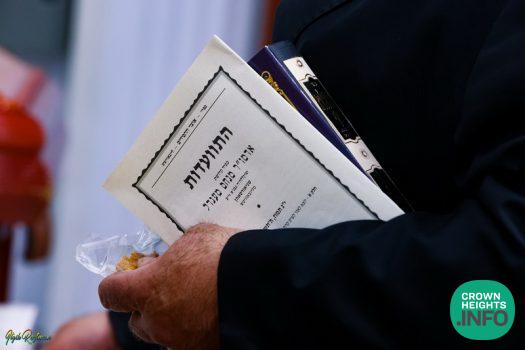
Weekly Story: Accepting the Nesius
by Rabbi Sholom DovBer Avtzon
As we are right before Yud Shevat, and in previous articles we noted some aspects of the Frierdiker Rebbe, Ia m posting this week some aspects of the Rebbe in the year after Yud Shevat 5710, and the following year when he said the Maamar Basi Lgani and officially accepted the Nesius.
Your comments and feedback are welcomed and appreciated.
The Rebbe did not wear a kapote on the weekdays right away, rather he came to 770 in a suit. Evidently he was trying to make a statement that I am who I was before Yud Shevat. However people still asked him questions as if he was the Rebbe.
One day the Rosh Hayeshiva, HaRav Mordechai Mentlik entered the Rebbe’s room to ask him a question. The Rebbe said to him, you also are coming to me? don’e you see that I am wearing a regular jacket?
Rabbi Mentlik replied, I am not coming to your clothing, I am coming to the person, [and the clothing he wears has no bearing on his essence].
However. one day in Elul the Rebbe came in a kapote. People thought it may be a sign that he is accepting the Nesius. However, the following day he came in his suit.So they were perplexed.
Rabbi Mentlik went over to Rabbi Hodakov, who was the Rebbe’s secrertary and asked him if he is willing to explain what happened the previous day.
Rabbi Hodakov replied; before yesterday the Ramash (as the Rebbe was called then) instructed me to call some important individuals for a meeting. I asked him who shou;d I say is calling the meeting? [Meaning, should I say the Lubavitcher Rebbe’s son-in-law, or should I say the Lubavitcher Rebbe]
The Rebbe replied, you know what to say. So I called them and said the Lubavitcher Rebbe would like to discuss something with you and the meeting was scheduled for yesterday. Therefore he came yesterday in a kapote..
The common theme of all farbrengens this shabbos and on Yud Shevat will be emphasizing the importance of strengthening pur hiskashrus to the Rebbe.
The basic point of hiskashrus is to do what the Rebbe requested of us. In other words the person puts aside his own understanding and desire and fulfills the Rebbes request and guidance.
In simple and practical terms this means when someone finds something difficult but yet he does it anyways just because this is what the Rebbe wants it done that is an expression of hiskashrus. Being that you are doing it to fulfill the Rebbes will, you will see that it is not as difficult as you imagined.
Rabbi Avtzon is a veteran mechanech and the author of numerous books on the Rebbeiim and their chassidim. He can be contacted at avtzonbooks@gmail.com.














